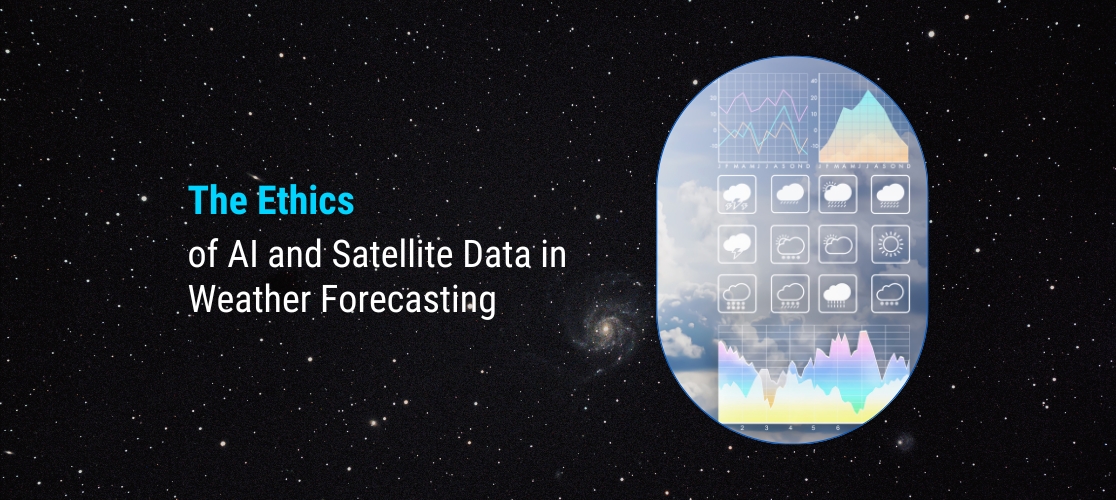18 April 2023
The Ethics of AI and Satellite Data in Weather Forecasting

As the use of AI and satellite data becomes increasingly prevalent in weather forecasting, it is important to consider the ethical implications of this technology. While AI and satellite data can provide many benefits, there are also potential risks and concerns that must be addressed. In this article, we will explore the ethics of AI and satellite data in weather forecasting.
Bias and Discrimination One concern with the use of AI in weather forecasting is the potential for bias and discrimination. If the AI algorithms are trained on historical weather data that is biased or discriminatory, this can lead to inaccurate or unfair weather forecasts. For example, if the AI algorithm is trained on data that reflects the weather patterns of a particular region or group, this may result in inaccurate forecasts for other regions or groups.
Transparency Another ethical concern is the lack of transparency in how AI algorithms are developed and used. It is often difficult to understand how AI algorithms make their predictions or recommendations, which can make it difficult to identify potential biases or errors. This lack of transparency can also make it difficult for people to trust the weather forecasts produced by AI algorithms.
Privacy and Security The use of satellite data in weather forecasting also raises concerns about privacy and security. Satellite data can provide a wealth of information about the earth and its environment, including people’s locations and activities. This information must be carefully protected to prevent it from being misused or falling into the wrong hands.
Responsibility The use of AI and satellite data in weather forecasting raises questions about who is responsible for the accuracy and reliability of the forecasts. If an AI algorithm produces an inaccurate forecast, who is responsible for the consequences of that error? Similarly, if satellite data is misused or mishandled, who is responsible for the consequences of that mistake?
Equity Another ethical concern is the potential for AI and satellite data to exacerbate existing inequalities. For example, if certain regions or communities have better access to weather data than others, this can result in uneven access to accurate weather forecasts. This can have serious consequences, particularly for vulnerable populations that may be disproportionately impacted by severe weather events.
Sustainability Finally, the use of AI and satellite data in weather forecasting must also be considered in the context of sustainability. While these technologies can provide many benefits, they also require significant resources, including energy and materials. It is important to carefully consider the environmental impact of these technologies and to ensure that their use is sustainable in the long-term.
In conclusion, the use of AI and satellite data in weather forecasting raises important ethical concerns that must be carefully considered. These concerns include the potential for bias and discrimination, the lack of transparency in how AI algorithms are developed and used, privacy and security concerns, responsibility for the accuracy and reliability of forecasts, equity and access to weather data, and sustainability. While AI and satellite data can provide many benefits, it is important to address these ethical concerns to ensure that these technologies are used in a responsible and equitable way. By doing so, we can ensure that weather forecasting continues to improve and provide benefits to all people, while minimising the risks and ethical concerns associated with this technology.
